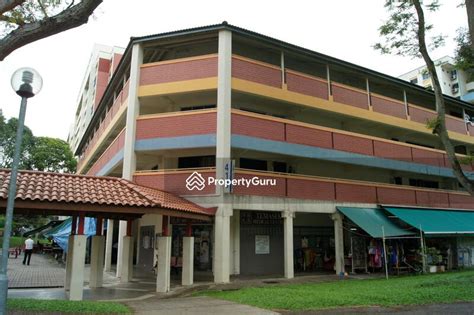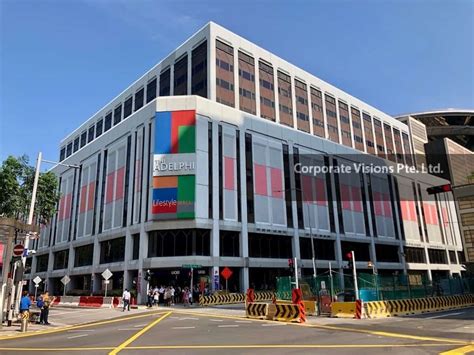Introduction
The introduction of the Additional Buyer Stamp Duty (ABSD) in 2011 marked a significant shift in the Singaporean real estate landscape. This additional tax levied on buyers of second and subsequent residential properties aimed to curb speculation and maintain market stability. As part of the government’s ongoing efforts to regulate the property market, the ABSD rates underwent several revisions over the years, with the latest amendment taking effect in 2023. This comprehensive guide will provide a detailed overview of the ABSD, its implications for second property owners, and strategies to mitigate its impact.

Understanding the ABSD
The ABSD is an upfront, non-refundable tax imposed on top of the regular Buyer’s Stamp Duty (BSD). It is calculated as a percentage of the purchase price or market value of the acquired property, whichever is higher. The applicable ABSD rates vary depending on the buyer’s profile and the property’s intended use.
ABSD Rates for Individuals
| Buyer’s Profile | First Residential Property | Second and Subsequent Residential Properties |
|---|---|---|
| Singapore Citizen | 0% | 12% |
| Singapore Permanent Resident (SPR) | 0% | 15% |
| Foreigner | 0% | 20% |
ABSD Rates for Entities
| Entity | First Residential Property | Second and Subsequent Residential Properties |
|---|---|---|
| Company | 0% | 25% |
| Trust | 0% | 25% |
Implications for Second Property Owners
The ABSD has a significant impact on the financial considerations for individuals and entities looking to acquire multiple residential properties. The substantial upfront tax can add a hefty sum to the purchase cost, potentially affecting affordability and return on investment.
Increased Acquisition Costs
The ABSD effectively increases the total cost of purchasing a second property. For example, a Singapore Citizen buying a $1 million second home would incur an ABSD of $120,000, resulting in a total acquisition cost of $1,120,000. This added expense can strain financial resources and reduce the potential return on investment.
Reduced Rental Yield
The ABSD also indirectly affects rental yield, as it increases the initial investment required to acquire a second property. The higher upfront cost means that landlords need to charge higher rents to recoup their investment, potentially limiting their rental income potential.
Impact on Investment Strategies
The ABSD has prompted investors to reconsider their property investment strategies. Some investors have shifted towards acquiring commercial or industrial properties, which are not subject to ABSD. Others have opted for smaller or less expensive residential properties to minimize the upfront tax burden.
Strategies to Mitigate ABSD Impact
Despite the challenges posed by the ABSD, there are several strategies that individuals and entities can employ to mitigate its impact:
Utilize Existing Exemptions
The government has introduced certain exemptions to the ABSD, such as:
- Owner-Occupied Exemption: Individuals who intend to occupy the second property as their primary residence can apply for a partial or full ABSD remission.
- Development Charge Exemption: Developers acquiring land to develop and sell residential units may be eligible for a waiver of ABSD on unsold units.
Consider Joint Ownership
Purchasing a second property with a spouse or family member can help reduce the individual ABSD liability. However, it is crucial to consider the potential legal and financial implications of joint ownership before proceeding.
Explore Financing Options
Utilizing financing options, such as mortgage loans or bank loans, can spread out the ABSD payment over a longer period, reducing the initial financial burden.
Long-Term Investment Approach
Adopting a long-term investment approach can help offset the impact of the ABSD. By holding onto the second property for an extended period, investors can benefit from potential appreciation in value, which may eventually outweigh the upfront tax expense.
Common Mistakes to Avoid
When navigating the ABSD landscape, it is essential to avoid the following common pitfalls:
- Assuming Eligibility for Exemptions: Not all buyers qualify for ABSD exemptions. Carefully review the eligibility criteria and consult with a qualified professional if necessary.
- Miscalculating ABSD Liability: Accurately calculating the ABSD amount is crucial to avoid underpayment or overpayment. Seek professional guidance to ensure a precise assessment.
- Disregarding ABSD Implications: Failing to consider the ABSD can lead to financial strain and unexpected expenses. Always factor in the ABSD when budgeting for a second property purchase.
Pros and Cons of ABSD
The ABSD has both advantages and disadvantages for the real estate market:
Pros:
- Curbs Speculation: The ABSD discourages speculative behavior and helps maintain a stable property market.
- Promotes Affordability: By increasing the cost of acquiring multiple properties, the ABSD makes it more accessible for first-time homebuyers to enter the market.
- Supports Government Revenue: The ABSD generates significant revenue for the government, which can be used for public services and infrastructure development.
Cons:
- Increased Acquisition Costs: The ABSD adds a substantial upfront cost to second property purchases, potentially limiting affordability and investment opportunities.
- Reduced Rental Yield: The higher initial investment required by the ABSD can reduce rental yield, affecting the financial viability of investment properties.
- Selective Impact: The ABSD primarily targets investors and second-home buyers, potentially disadvantaging them compared to first-time homebuyers who are exempt from the tax.
FAQs
1. When is the ABSD payable?
The ABSD is payable within 30 days of the exercise of the option to purchase or the signing of the sale and purchase agreement.
2. Can the ABSD be refunded?
The ABSD is generally non-refundable. However, there are certain circumstances where a refund may be granted, such as if the property purchase is canceled or if the buyer qualifies for an exemption.
3. What is the difference between ABSD and BSD?
The ABSD is an additional tax levied on second and subsequent residential properties, while the BSD is a standard tax applicable to all property purchases.
4. How does the ABSD affect foreign buyers?
Foreign buyers are subject to a higher ABSD rate of 20% for both first and subsequent residential property purchases.
5. Are there any plans to revise the ABSD rates in the future?
The government regularly reviews and adjusts the ABSD rates to meet the evolving needs of the real estate market.
6. Can I avoid the ABSD by purchasing a commercial property?
Commercial properties are not subject to ABSD. However, it is important to note that the purchase of a commercial property may attract other taxes and fees.
7. What are the penalties for non-payment of ABSD?
Late payment or underpayment of ABSD may result in penalties and interest charges.
8. Where can I find more information about ABSD?
The Inland Revenue Authority of Singapore (IRAS) provides comprehensive information about ABSD on its website and through its hotline.
Expanding Market Insights
Impact on Luxury Property Market
The ABSD has had a significant impact on the luxury property market. The higher tax rates for second and subsequent properties have made it more costly for investors to acquire and hold luxury homes. As a result, the demand for luxury properties has decreased, leading to a softening of prices in some segments of the market.
Emergence of Alternative Investment Options
The introduction of the ABSD has driven investors to explore alternative investment options. Some have shifted towards commercial or industrial properties, which offer potential rental income and long-term capital appreciation without the burden of ABSD. Others have turned to overseas property markets or alternative asset classes, such as stocks and bonds.
Conclusion
The ABSD has become an integral part of Singapore’s property market regulatory framework. Understanding its implications and adopting appropriate strategies can help individuals and entities navigate the challenges posed by the tax. By carefully considering the ABSD rates, exploring available exemptions, and utilizing financing options, buyers can mitigate its impact and make informed decisions when acquiring second properties. The ABSD has undoubtedly influenced investment strategies, market dynamics, and the overall accessibility of housing in Singapore, and its future evolution will continue to shape the real estate landscape for years to come.













